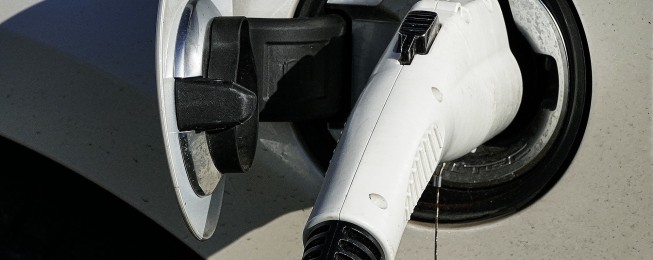 Will the EV future be diverted by a charging let-down?
Will the EV future be diverted by a charging let-down?
Jess Britton, IGov Team, 26th April 2018
Following the Government’s pledge to ban the sale of new petrol and diesel cars in Britain by 2040 a host of support schemes for electric vehicles were announced in the Autumn Statement, including a Charging Investment Infrastructure Fund to accelerate the roll out of charging infrastructure, and more money to help people buy electric cars. Already 2018 has seen a flurry of announcements from both policymakers and energy companies, including the Office for Low Emission Vehicles (OLEV) announcing £30million of investment in 21 vehicle to grid projects that could enable electric vehicles to deliver electricity back to the smart grid. Just last week OVO Energy launched a bi-directional Vehicle-to-Grid (V2G) Charger that will allow consumers to charge their batteries when electricity is cheap and then sell back excess power to the grid at times of peak demand.
Despite these positive developments some of the basics of delivering charging infrastructure are being missed. In January the Government highlighted that £4.5million of funding remains in the On-Street Residential Chargepoint Scheme with just 5 councils applying to the scheme which provides up to 75% of the cost of procuring and installing chargepoints.
Personal experience suggests that domestic charging infrastructure is also problematic. Late last year, taking advantage of the tax reductions available for low emission cars, my partner and I selected a plug-in hybrid electric vehicle (PHEV) through a company lease scheme. We received a lower emission vehicle at a lower cost – what’s not to like? In preparation we contacted the Electric Nation Project, a trial in the Western Power Distribution network area to collect data about charging habits and simulate network events that may require adjustments to car charging. To enable this WPD provide and install a free smart charger for participants. Unfortunately the installer due to provide chargepoint backup and maintenance in Cornwall withdrew from the project so we were unable to take part and were directed to the OLEV approved installers list to find a supplier in our area.
The OLEV holds a list of approved installers that are eligible to access its Electric Vehicle Homecharge Scheme (EVHC) which provides grants of up to 75% (capped at £500) towards the cost of installing a domestic EV charger. After confirming our vehicle model was eligible we downloaded the list of authorised installers – 754 in total – so far so good. But closer analysis of the list was rather disappointing. Not only was it hard to determine if many of the companies actually existed, with no email, phone number or website listed and only a company name and postal address provided, but only five companies were listed as covering Cornwall with just three actually based within the county. Several more listed themselves as covering the whole of the UK or the South West but the feasibility of an electrical installer based in Birkenhead or Hemel Hempstead installing a single domestic chargepoint in Cornwall seems limited to say the least.
We contacted the OLEV to advise them of the limitations of the authorised installer list and request a list of installers that actually cover this part of the UK, to be advised that they ‘only have this list to go by and so cannot otherwise advise you, except to approach those installers who offer nationwide coverage’. Given that the Government is investing large sums of money in EV infrastructure and EV sales are increasing rapidly there seems to be a simple role for the OLEV to ensure that more robust and user-friendly records of authorised installers are maintained. At a minimum this should include only authorising installers who provide full contact details and ensuring that a minimum number of installers are registered for each county or region of the UK. In other words, if included on the list for Cornwall, the installers are agreeing to install in Cornwall at a fair cost. If areas fall below agreed thresholds then the OLEV should work with Electrician Associations and training bodies to increase numbers. Without access to appropriately trained, cost effective chargepoint installers householders will either be put off buying an EV by the sheer hassle factor or those who are able (with a mode 2 charging cable) will opt to charge their vehicle through an EV cable plugged into a domestic socket. This prevents rapid charging and smart operation as well as rendering the EV invisible to the DNO – hardly the role EVs are envisioned to play in a smart, flexible energy system.
OLEV please do better!
Related Posts
« Previous Global Insights: 24th April 2018 Presentation: Assessing market arrangements and getting the best deal for users Next »







